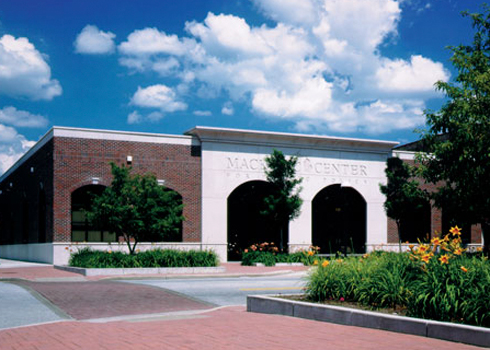A little less than a month ago, a conservative-leaning policy think tank in Michigan took advantage of the labor strife in Wisconsin to call on three state-run universities to hand over emails related to the Wisconsin protests and MSNBC’s Rachel Maddow, written by labor studies professors.
So far, the emails from the University of Michigan, Wayne State University and Michigan State University– requested by the Mackinac Center For Public Policy under the Michigan Freedom Of Information Act — haven’t been handed over. But that could soon change.
According to Mackinac, all three schools have begun the process of compliance with the FOIA request. TPM was able to confirm that’s the case with one school, the University of Michigan. Despite a recent email from the president of that university to faculty touting a strong defense of academic freedom, a spokesperson told TPM Michigan law requires the school to push forward with collecting and vetting the emails before possibly turning them over to Mackinac.
Here’s where things stand: About a week ago, all three schools told Mackinac that they’d begin the process of compliance with the request. For each school, Mackinac says, that included suggesting a fee to cover the cost of collecting the emails and a promise to collect and review them.
Mackinac says it sent checks to two of the three universities on Apr. 19 to begin the process.
In the case of UM, a spokesperson for the school told TPM that fee is $215.00. The school, which fields hundreds of FOIA requests each year, requires those making a request to hand over half the money as what the spokesperson called “a good faith deposit.”
Once that happens — as it has in the case of the Mackinac FOIAs — the school begins culling the requested documents and reviewing them to avoid running afoul of federal law preventing the divulgence of student information, as well as other exemptions to FOIA requirements written into Michigan law.
That process will be complete “soon,” university spokesperson Rick Fitzgerald told TPM.
“It’s definitely moving ahead,” he said.
That’s probably not the answer progressives and advocates for academic freedom wanted to hear. Critics — including the FOIA’d professors themselves — said the Mackinac requests smelled of intimidation, and some hoped the schools would choose to fight them rather than comply. (For its part, Mackinac has said its looking for violations of law preventing state-paid professors from engaging in political activity on university time.)
In a letter sent to faculty last week, University of Michigan President Mary Sue Coleman and other school leaders expressed their support for the concept of academic freedom at the school in response to the Mackinac FOIAs.
“Protecting students’ and the faculty’s right to pursue lines of inquiry and express ideas without fear of reprisal is fundamental to the University’s core missions of research and education,” they wrote. “The pursuit of answers, however unpopular, cannot be constricted if we are to remain a place of open and vigorous debate.”
“The principles of academic freedom are ones we will always uphold and defend,” they added.
When it comes to the Mackinac requests, however, state law ties the hands of the school.
“In Michigan [the law states a FOIA request] should be completed as long as it doesn’t meet the exemptions,” Fitzgerald explained. “From our perspective [the Mackinac request] is one of many, many requests we handle at the University of Michigan.”









